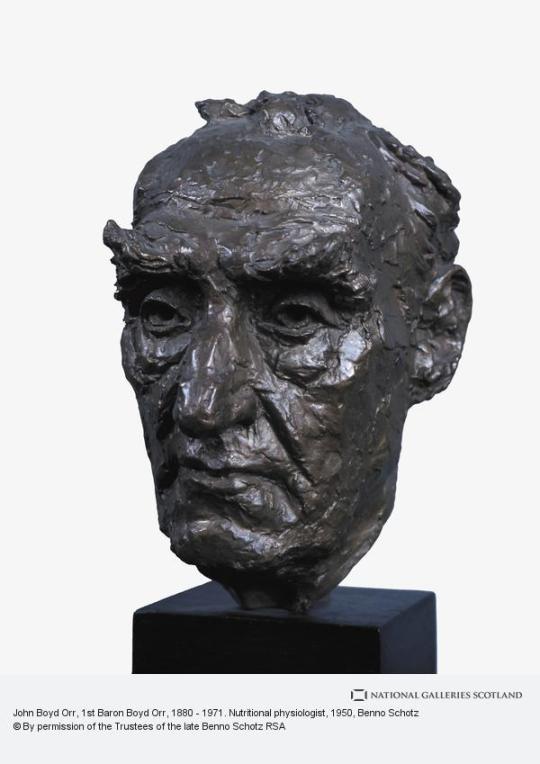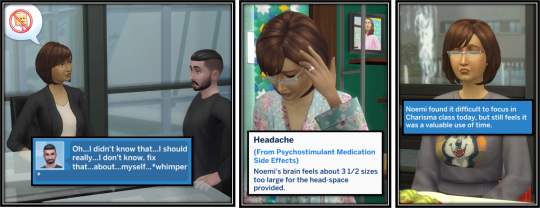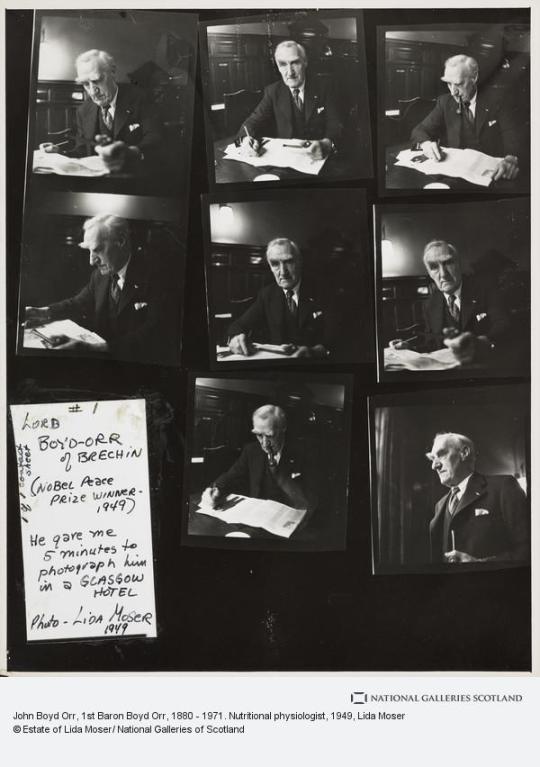#agriculture supervisor
Explore tagged Tumblr posts
Text
Craziest thing my supervisor ever told me is that the kind of enthusiasm I have for mealworms is not as common as I think it is. I kinda just figured everyone at the Bug Farming DepartmentTM was here for the bugs, but apparently a lot of people are just here for the farming. Getting excited about bugs for bugs' sake is apparently a rare thing in the agricultural departement - most people are more interested in how to use bugs, or even Number Go Up, which I've never been that interested in. No wonder my supervisor keeps agreeing to my insane projects, pushing me to publish my half-finished theses, and talking over time in our meetings. It must be like a breath of fresh air for her.
#re: that post about every mealworm article in the last 30 years opening with a blurp about how 'we have to feed a growing population'#i honestly should've realized#studying bugs for bugs' sake is what you do at the zoology departement not the agriculture departement lol#idc my supervisor gave me a glass of honey when i finished my mealworm reproduction thesis i'm thriving here
1K notes
·
View notes
Text
PACE Nepal Vacancy 2081 for Various Posts in Karnali Pradesh
PACE Nepal Vacancy 2081 for Various Posts in Karnali Pradesh: Project Coordinator, Construction Supervisor, Finance Officer, Civil Engineer, Forest Officer, Agriculture Officer, Enterprise Development Officer, Monitoring, Evaluation and Documentation Officer. Interested and eligible candidates can apply till 15th August 2024. CAREER OPPORTUNITIES PACE Nepal Vacancy 2081 for Various Posts in…
#Agriculture Officer#Civil Engineer#Construction Supervisor#Enterprise Development Officer#Evaluation and Documentation Officer#Finance Officer#Forest Officer#Jobs in Karnali Pradesh#Jobs In Nepal#Monitoring#NGO Jobs#PACE Nepal Vacancy 2081#Project Coordinator
0 notes
Link
https://marmikmaharashtra.com/agriculture-supervisor-killed-at-akhara-balapur/
0 notes
Text
Marathon County seeks local control over mining, wind energy projects, farm runoff
The letter states: “Marathon County asks that the State of Wisconsin return the tools necessary to exercise local control to the counties and municipalities best situated to address these issues.”
Damakant Jayshi The Marathon County Board of Supervisors will submit a letter to Wisconsin’s governor and the legislature seeking a return of local government control over environmental matters related to metallic mining exploration, wind energy siting and farm runoff. “Over time, through legislative and state agency action and preemption, local governments have become less adept to address…

View On WordPress
#afternoon update#agricultural runoff#DNR#Easton Reef Deposit#exploratory drilling#farm runoff#Green Light Metals Inc.#Green Light Wisconsin#groundwater contamination#Jacob Langenhahn#Jean Maszk#Marathon County#Marathon County Board of Supervisors#Tim Sondelski#wind energy#wind turbines#Wisconsin Department of Natural Resources
1 note
·
View note
Text
Agriculture Supervisor Recruitment 2023
Rajasthan Agriculture Supervisor Recruitment 2023 : राजस्थान एग्रीकल्चर सुपरवाइजर भर्ती 2023 का इंतजार खत्म हो गया है राजस्थान एग्रीकल्चर सुपरवाइजर के 430 पदों पर भर्ती की जाएगी l इसमे नॉन टीएसपी क्षेत्र के लिए 385 पद और टीएसपी क्षेत्र के लिए 45 पद रखे गए है l राजस्थान एग्रीकल्चर सुपरवाइजर भर्ती 2023 के लिए प्रस्ताव राजस्थान कर्मचारी चयन बोर्ड को भेजा जाएगा l इसके बाद राजस्थान कर्मचारी चयन बोर्ड…

View On WordPress
#Agriculture Supervisor 2023#Agriculture Supervisor Recruitment 2023#Agriculture Supervisor Vacancy 2023#Rajasthan Agriculture Supervisor 2023#Rajasthan Agriculture Supervisor Bharti 2023#Rajasthan Agriculture Supervisor Recruitment 2023#Rajasthan Agriculture Supervisor Vacancy 2023#RSMSSB Agriculture Supervisor Recruitment 2023#RSMSSB Agriculture Supervisor Vacancy 2023#एग्रीकल्चर सुपरवाइजर भर्ती 2023#राजस्थान एग्रीकल्चर सुपरवाइजर भर्ती 2023
0 notes
Text
“Why did you do that?!”
Tenes shuffles uneasily in the background, biting his lip as he clenches his fingers over the clipboard. He casts a glance at Thrasus, who looks angry, and it’s kind of scary, even though the anger isn’t aimed at him. Tenes would rather that his supervisor be upset with him, though, because the current reality is even worse: Thrasus is angry with Titania.
Titania, the first of the Iron Cavalry. The bioweapon that was specifically designed to lead and command the legions of cloned soldiers against the Swarm.
Behind the thick layer of reinforced glass, Titania floats quietly in the blue-green experimental liquid. It casts an eerie color over her naked body –as if the solid black limbs morphing into human flesh wasn’t enough of an eerie sight already. And there were also those antennae atop her head. Tenes is almost glad that Titania has never opened her eyes before, because if it’s the same as those beady eyes of the bug-aliens, then he thinks that he might have nightmares for a week.
[I do not understand your question, Thrasus.] The speakers connected to the audio device acting as Titania’s ‘voice’ suddenly come to life. The voice is feminine, but very clearly artificial and robotic all the same.
(Personally, Tenes has never really understood the choice; wouldn’t it be easy enough to designate a more realistic-sounding voice to translate Titania’s signals? Wasn’t enough already that Titania looked half-bug alien, what was the point in making her seem half-machine lifeform, too? … More nightmare fuel, as if the entire world wasn’t enough of a nightmare already?)
“You were designed with the pinnacle of Glamoth’s intelligence, don’t play dumb.” Thrasus’ voice is harsh and unamused. “Why did you withdraw the Iron Cavalry from Pandaisia?”
[The forces stationed there were not enough to overcome the increased numbers of the Swarm. Engaging in combat would not have yielded meaningful results, and so I deemed that the Iron Cavalry would be better utilized in–]
“So you just gave up on Pandaisia?!” Thrasus roars.
[Correction: Temporary retreat.] Titania remains unmoving amid the hundreds of wires that she’s connected to. For all intents and purposes, she appears to be peacefully sleeping –which strikes a strong contrast against Thrasus’ anger. [Pandaisia is a nonessential area with low strategic value. It would be better to reclaim Phaenna first, before mounting any efforts to target–]
“The Council specifically ordered for Pandaisia to be reclaimed by the end of this month,” the scientist hisses. “Do you not understand the boost it would be for morale? Pandaisia’s agricultural industry once had the highest output in Glamoth with its fertile lands. If we can tell people that Pandaisia is ours once again, if we can let them know that there’s hope even despite the ongoing resource crisis–”
[Pandaisia’s lands have already been ravaged by the Swarm. It is unlikely that the fertility of the land will produce any bountiful crop yields. Estimated time of recovery is–]
“It’s not just about the goddamned resources! We need a meaningful victory that people can rally behind and cheer for!” Thrasus groans, running a hand through his hair. “Gods, resources are thin enough already, and if the Council decides to pull their support, then we–”
“Let me deal with the Council, Thrasus.”
Thank gods Chief Scientist Polus is here. Tenes quietly closes and hides his communicator –the one he’d used to notify the Chief Scientist of what was going on here. Then, he does his best to make himself small and disappear into a corner of the room.
“… Polus.” It’s either the Chief Scientist’s sudden appearance or the fact that Thrasus has already gotten most of the anger out of his system through shouting that has the man swiftly calming down again. “You aren’t worried at all by what this might mean for us?”
“The Council won’t decommission the Iron Cavalry,” the Chief Scientist shakes his head. “The Iron Cavalry is the hope of Glamoth. It’s only been a short time since Titania was activated, and we’re already starting to see results with the Swarm being pushed back in various locations all over Glamoth. The Council is just being too hasty.”
“Whatever. I’ll leave the political talk to you, then,” Thrasus grumbles.
The Chief Scientist nods, then turns towards the immobile bioweapon floating in her containment chamber.
[Hello, Polus.]
“Hello there, Titania.” Chief Scientist Polus checks a few of the readings on the side panels, then nods in apparent satisfaction at what he sees. “How are you doing?”
[I am well. All systems are online and operational.]
“Good,” the Chief Scientist nods, stepping backwards. He pulls out a holographic screen, and begins tapping away through them, his fingers a blue. “And, Titania –none of us here are military officers or strategists, so we can’t help you in matters of the battlefield. But, we’re still here to support you. Don’t be too concerned about losing your soldiers.”
There is a slight pause this time, before Titania responds again. [… I do not understand. Is there not an ongoing resource crisis?]
Thrasos snorts and folds his arms across his chest, muttering, “This is the one resource that there’s plenty of. Accursed bug aliens…”
“It’s fine, Titania,” Chief Scientist Polus replies, ignoring his fellow researcher and not even pausing to glance up from his growing cluster of holographic screens. “Don’t worry about it. We can just make more of them.”
#Writing#zenith of stars au#titania au#honkai star rail#more on this particular plot bunny!#guys if i write more about this does it mean i'll pull firefly before i hit hard pity#/jk#good luck to everyone pulling for firefly in their gacha pulls!
76 notes
·
View notes
Text



On September 23rd 1880, John Boyd Orr, Nobel Peace prize winner, was born in Kilmaurs, Ayrshire.
John Boyd Orr's pioneering research led to millions of children across the UK being given free school milk from 1946 to 1971 when Margaret Thatcher, then education secretary, cut provision giving her the mick name Thatcher, "Thatcher, Thatcher, milk snatcher”
Boyd Orr was born in Ayrshire into a religious and highly literate family, and it was perhaps inevitable that he should be destined for a career in teaching after studying theology. However, his studies at Glasgow University also opened up new avenues for him. He became interested in the theories of Darwin, and this led to a fascination with zoology.
When he graduated with his MA in 1902, he was assigned to a teaching position in the Glasgow slums to fulfil the obligations required by his scholarship. He lasted only a few days before resigning and going back home to Ayrshire where he was reassigned to a school in Saltcoats. There he completed his teaching but left as soon as he could, saying: "though I liked the children, I hated teaching them”.
Boyd Orr returned to university to study biology and medicine, and he graduated with a BSc in 1910 and MB ChB two years later. He only practised for one month before returning to university to undertake nutritional research. His MD thesis in 1914 was awarded the Bellahouston Gold Medal for the most distinguished thesis of the year.
On the recommendation of his supervisor, he was asked to be the first director of a new research institute in Aberdeen, which would later become the world renowned Rowett Institute. At the time of his appointment, it did not exist, but he would spend the next twenty-five years raising both funds and the profile of nutritional research to make it a reality.
The initial work to build the institute was, however, interrupted by the outbreak of war. Boyd Orr enlisted in the RAMC and saw active service on the Western Front where he was awarded both the Military Cross and the Distinguished Service Order. Later he would never wear the medals saying that the truly brave men had all died.
In the interwar years, he travelled widely and published extensively, emerging as one of the country’s leading experts in nutrition. He first came to national attention in 1936 with the publication of Food, Health and Income, a report of a dietary survey by income group, which revealed that the cost of a diet meeting basic nutritional needs was beyond the means of half the British population.
This led to similar studies being conducted in nineteen other countries and prompted the creation of a Commission of the League of Nations, which tried to formulate a global food policy. It became the forerunner of the United Nations Food and Agriculture Organization (FAO). Boyd Orr would become the Director General of the FAO from 1945-48. These were important years because the predicted European post-war famine was averted in part by policies put forward by the organisation.
Boyd Orr was no stranger to the challenges of developing and implementing food policies, many of which are still with us today. He spent his later career trying to persuade governments and presidents, organisations and companies to rethink the way they did things. However, he would often bemoan the fact that while he could persuade farmers of the importance of the nutrition of their animals, he could not stir their interest “in the food of their ain bairns, far less in the bairns of ither folks”.
His was a life filled with honours and awards, from Gold medals at University to military decorations to honorary degrees and more. He was elected Rector of Glasgow University and subsequently became its Chancellor. He was briefly a British Member of Parliament, and in 1935 he was knighted for his services to agriculture. In 1949, after he was awarded the Nobel Prize, Prime Minister Clement Attlee ennobled him as Baron Boyd Orr of Brechin Mearns.
Reading of Boyd Orr’s long career it seems he had a series of false starts and perhaps even failures. But he was no dilettante. He combined a powerful intellect with an admirable work ethic to achieve a mastery in everything he tried. That he chose to move from a career in teaching to medical practice, to research, to politics and then to governance and policy making was not evidence of mere restlessness but of a constant desire to do meaningful work.
Boyd Orr was at heart a man with an ambitious vision for the world, and he firmly believed that real peace and prosperity would only ever be achieved when no one was hungry.
The citation for the 1949 Nobel Peace Prize read: “for his lifelong effort to conquer hunger and want, thereby helping to remove a major cause of military conflict and war”.
21 notes
·
View notes
Text
NSB (Straud Legacy) Gen 9
Today's (8/9/2024) Episode: Work A Day Woes
Noemi and Luigi’s parties with their friends had gone great, but both soon found themselves struggling with issues at work.
Hard working, tech savvy Noemi had always struggled with the “people skills” side of things. Her brutal honesty and lack of tact came out most problematically with one poor client who reminded her too much of a boring generic copy of her Lu.
Her supervisors made it plain that they needed more Charisma from her, but her brain just had trouble working that way, even with the assistance of her frequently troublesome psych meds. She had high hopes for a “Tech Salesmanship” continuing ed class she found, but all the best intentions in the world and the formal learning atmosphere she was used to still couldn’t make the techniques that worked for others natural for her.


Of course, Noemi’s industry wasn’t completely a bad fit for her skills. She loved settling down at the keyboard and delving into the technical side of things. Sadly, at her level, solving tricky coding problems was less important than team dynamics: recruiting, nurturing, and capitalizing on new talent.
So even though she pressed on with the tasks her bosses paid her the big bucks for, she always kept her eyes open for side jobs that interested her.
She and Luigi didn’t need the extra simoleons, but working side by side on odd little one-off projects she picked up on the Llamacorn Listserve, like the mayor of Strangerville’s plea for help documenting the towns latest agricultural conspiracy, made for fun quality time together.


Luigi’s own problems weren’t triggered by a lack of charisma so much as an over abundance of pride and self interest.
Playing so hard at competitive gaming at work, at practice, and during charity streams had been giving his mousing hand a lot of stress. Refusing to take it easy when his wife had a project in mind, or his friend challenged his foosball cred, caused that strain to progress to a persistent burning ache.
Rather than step back and accept his limits, he researched repetitive stress injuries just enough to find the very best ergonomic hardware to work around the problem. The expensive mouse made a big difference in how long he could play hard before the consequences caught up with him and made it easier to pull off many demanding moves. Unfortunately, a match being sponsored by a big-name tech company left him with a dilemma.


Despite marketing material promoting the sponsors “high quality standard equipment” nothing in the actual rules prevented Luigi from using his ergonomic mouse. As he’d hoped, the custom hardware allowed him to end the match only mildly uncomfortable and at the top of the leaderboard.
That decision turned out to be deeply unpopular with both the sponsors of the tourney and a vocal segment of fans who saw it as unfair and unsporting.
Unfortunately, the same pride that drove Luigi to develop that repetitive stress injury stopped him from even considering admitting that he had any such weakness. Unwilling to seek accommodations to play with a sanctioned ergonomic device or admit in the post-game interview that he was driven by anything but a need to “be the best” left him with an unsavory reputation. Still, he would rather be seen as a cheater than “over the hill”.


Both sims hoped to find a way to turn their luck around soon.
In the meantime, they took comfort in each others company to make their dark days brighter.


View The Full Story of My Not So Berry Challenge Here
#sims 4#sims 4 challenge#sims 4 legacy#sims4#sims 4 nsb#sims4nsbstraud#sims 4 not so berry#sims 4 let's play#sims 4 gameplay#sims 4 lets play
7 notes
·
View notes
Text

Letter to President Kennedy on employment of people with mental illness or developmental disabilities, February 26, 1963.
[cw: ‘60s-typical language relating to mental/developmental disabilities]
Collection JFK-3: Papers of John F. Kennedy: Presidential Papers: President's Office Files
Series: Subject Files
File Unit: Mental retardation
Transcription:
[HANDWRITTEN] Handicapped 8
THE PRESIDENT"S COMMITTEE ON EMPLOYMENT OF THE HANDICAPPED
Washington 25, DC
February 26, 1963
MAJ. GEN. MELVIN J. MAAS
USMCR, RET.
CHAIRMAN
[Stamped] THE WHITE HOUSE
FEB 27 9 35 AM '63
RECEIVED
ASSOCIATE MEMBERS
THE SECRETARY OF STATE
THE SECRETARY OF THE TREASURY
THE SECRETARY OF DEFENSE
THE ATTORNEY GENERAL
THE POSTMASTER GENERAL
THE SECRETARY OF THE INTERIOR
THE SECRETARY OF AGRICULTURE
THE SECRETARY OF COMMERCE
THE SECRETARY OF LABOR
THE SECRETARY OF HEALTH, EDUCATION, AND WELFARE
THE ADMINISTRATOR OF VETERANS AFFAIRS
THE CIVIL SERVICE COMMISSION CHAIRMAN
THE DIRECTOR OF THE OFFICE OF EMERGENCY PLANNING
THE ADMINISTRATOR OF THE GENERAL SERVICES ADMINISTRATION
The President
The White House
Washington, D.C.
Dear Mr. President:
In light of your recent message on mental illness and mental retardation, I felt you would be interested in recent activities of the President's Committee in broadening job opportunities for the mentally restored and mentally retarded.
We have just received a grant from the Ida S. Latz Foundation, Los Angeles, for the preparation of a Guide to Job Placement of the Mentally Restored. At present, there is nothing like this in existence.
The Bureau of Employment Security of the Department of Labor has agreed to finance a companion publication, a Guide to Job Placement of the Mentally Retarded, prepared for us by the National Association for Retarded Children- a "first" in its field.
At the recommendation of an Ad Hoc Committee of the President's Committee, the Civil Service Commission and the National Association for Mental Health are designing a vast orientation program to acquaint Government supervisors at all levels with facts about the mentally ill and mentally restored. This program, it is felt, should help open new vistas for the mentally restored in the Federal Service.
Our Annual Meeting in Washington on May 9 and 10 will highlight employment of the mentally restored through a panel discussion, and employment of the mentally retarded through an excellent play, "These Are Not Children."
I hope to keep you informed from time to time of other developments.
Cordially,
[SIGNED] Melvin J. Maas
Melvin J. Maas
Chairman
#archivesgov#February 26#1963#1960s#Kennedy administration#disability history#60s-era language relating to mental illness and developmental disabilities#r-slur#mental illness#developmental disabilities
39 notes
·
View notes
Text
This is your friendly reminder that it is very illegal for companies in the United States to prohibit employees from discussing wages amongst themselves!*
KNOW YOUR RIGHTS!
*Excluding public-sector employees (employees of state, federal and local governments and their sub-divisions), agricultural and domestic workers, independent contractors, workers employed by a parent or spouse, employees of air and rail carriers covered by the Railway Labor Act, and supervisors.
Source:
4 notes
·
View notes
Note
Re: Liaodong, what about after Guanqiu Jian rebelled and got killed? Who took over Liaodong then?
He was actually transferred to the southern front after his successful campaign in 245 (that's why his rebellion was in the Shouchun area). At that point, the region was no longer under any kind of active danger and his talents were needed against the real threat from Wu.
I haven't been able to find out who replaced him as the head of You province. It was a peaceful place with no major crises until the Jin era, so it isn't mentioned very much.
Just as a general note, because this is the kind of thing fiction really obscures: Guanqiu Jian was a very successful commander who was basically sent wherever he was needed most. He's mostly remembered for his rebellion, but the whole reason that rebellion was significant is because he was kind of a big deal.
His father distinguished himelf fighting rebels during the early years of Cao Pi's reign, for which he was made a marquis and summoned to hold a minor position at court. He died not long after that and Jian inherited his estate. He was appointed to Cao Rui's suite as a literary scholar (they were probably close in age) and remained a close personal friend of him for the entirety of his life. When Cao Rui took the throne he was appointed to the Secretariat, then as a supervisor of the palace guards. After that he was sent out to oversee agriculture around Luoyang, where he was praised for prioritizing the needs of the people over Cao Rui's building projects.
Afterwards he was promoted to be inspector of Jing province. At that time, Sima Yi controlled military affairs in Jing, so the two would have worked closely together. It can be assumed that he participated in the various campaigns in the region, though details are not recorded. It was because of these deeds that he was sent to be the head of You province near the end of Cao Rui's life, to suppress Gongsun Yuan. Although his first attack on Liaodong was unsuccessful, he provided invaluable service to Sima Yi during the second campaign and was highly rewarded for his contributions. Then followed a period of several years where he led the local armies against various Korean states, ending with a large campaign in 245 as we have discussed before.
After that, he was made General of the Left, Inspector of Yu province, and head of all the province's armies. After Zhuge Dan was defeated at Dongxing, Guanqiu Jian replaced him in Yang province, at the forefront of the war against Wu. Under Sima Fu (and possibly Sima Shi) he led the defense against Zhuge Ke at Hefei in 253.
His rebellion at the start of 255 should, then, be viewed in the context of this long and illustrious career. You can read all the details in his biography.
10 notes
·
View notes
Text
Society for Integrated Allied Nepal (SIAN) Vacancy 2081 for Various Positions
Society for Integrated Allied Nepal (SIAN) Vacancy 2081 for Various Positions: Field Coordinator, Field Program Supervisor (Agriculture and Nutrition), Field Program Supervisor (Wash), Data Manager Officer, Admin Finance Officer for Kathmandu and Nawalparasi West. Interested and eligible candidates can apply by 5 pm on August 1, 2024 (Shrawan 17, 2081). Vacancy Announcement Published Date: 18th…
#Admin Finance Officer#Data Manager Officer#Field Coordinator#Field Program Supervisor (Wash)#Field Program Supervisor - Agriculture and Nutrition#jobs in kathmandu#Jobs in Nawalparasi (west)#NGO Jobs#Society for Integrated Allied Nepal (SIAN) Vacancy 2081
0 notes
Text
己酉元日 - First Day of Ji-You
by 陆游 (Lu You, 1125 to 1210)
夜雨解残雪 朝阳开积阴 yè yǔ jiě cán xuě zhāo yáng kāi jī yīn Night rain melts what was left of the snow, the morning sun parts accumulated cold.
桃符呵笔写 椒酒过花斟 táofú hē bǐ xiě jiāojiǔ guò huā zhēn Peachwood blessings, with brush breath-warmed, written; pepper-wine amongst the flowers, poured.
巷柳摇风早 街泥溅马深 xiàng liǔ yáo fēng zǎo jiē ní jiàn mǎ shēn Alley willows sway in the early wind, street mud splashing, deepen the horse's coat.
行宫放朝贺 共识慕尧心 xínggōng fàng cháo hè gòngshì mù yáo xīn The Travel-Palace opens for the Court's Greetings, so all may know admiration for our virtuous lord.
………………………………………………………………………………………….
NOTES
I've been procrastinating on my original intended New Year poem because I had a feeling the notes for that will be really long xD Oops. But THIS is another homework poem! And a cheerful one to make up for the last (sorry Li Yu lolol).
TITLE
I love this title because it immediately tells us exactly when this poem is set, if not when exactly it was written. Years in Lu You’s time were numbered by the sexagenary cycle, better known as 干支 (gān zhī) or stems & branch, in which a full cycle consisted of sixty combinations of the heavenly stems and earthly branches, representing sixty years. Here is a lovely explanation of how this works.
The Stem-Branch year was usually paired with the Emperor’s era name to identify which year it was. In this case, we only know it was a 己酉 Ji-You year (46th in the cycle)... but we also have Lu You’s birth and death years 1125 to 1210. Comparing that with the list of Ji-You years, we see that there were two Ji-You years in his lifetime. One in 1129 when he was four, and the other in 1189 when he was sixty four. And though he could compose poetry and essays by the age of twelve, I doubt he could have written this at four years old xD
It turns out that despite my confusion, 元旦 is actually an alternate name of 元日, though what we now call the first day of the new agricultural calendar year is 元旦. A quick search of ctext's historical records and compilation sections returned 295 results from both pre and post Qin-Han periods for 元日, while 元旦 returned only 19 from Han and after. This made me SUPER curious because 元旦 is one of the names we know the first day of New Year by these days. Could it actually be newly adopted?
So a deeper dive into the results! 元日 was used as 'first day of the first month' in 《书·舜典》, a chapter of the Book of Documents which was a collection of rhetorical prose attributed to figures of ancient China. It was supposedly compiled by Kongzi (551- 479 BCE) in the 6th or 5th century BCE. Meanwhile, the earliest mention of 元旦 was in《太平御览》Readings of the Taiping Era, which was an encyclopedic document commissioned by the Song Imperial Court that took six years to complete, from 977 to 983 CE. The term 正旦, used in《列子·说符》to refer to the first day of the new year may have been an inspiration for the term. However, 元旦 as we know it in modern times, was in fact first used by Sun Yat Sen in 1912, on the 1st of January as he dated his signoff for the document《临时大总统宣言书》Inaugural Address of the Provisional President. However, this was not the official naming of this day yet. That came in 1949, on the 27th of September, as a result of the first Chinese People's Political Consultative Conference (x).
BACKGROUND
Since we can infer that the title refers to new year’s day in 1189, let’s have a look at what was happening during this period.
Do note that the source used is Baidu, though it seems fairly well researched from what I saw of it (checked only the relevant references for this section xD). I appreciate their dedication to putting together such a detailed timeline from a variety of records and documents!
Some ten years prior in 1179, Lu You had resigned from his post of Changping Supervisor (over granaries) when an official impeached him for insufficient restraint and crossing lines, referencing his actions of ordering for granaries in the commandery to be opened for disaster relief during the Jiangxi floods. He retired to Shanyin, where he had grown up, for five years. In 1186, he was given the post of Yan Prefecture’s Prefect, and was very popular with the people. During this time, he compiled his works in《剑南诗稿》Jiannan Poetry Manuscripts - so titled because he had lived there (Jiannan) for some time and loved it so. Two years later in 1188, his term of office was up. In the seventh month of that year, Lu You returned to the capital and was promoted to the position of Vice Director of Weapons and Military Equipment.
It was Emperor Xiaozong who was in power at that time. He had only just taken full power in 1187 after the death of Taishanghuang Emperor Gaozong (who had remained the de facto ruler despite abdication in 1162), and himself abdicated in the second month of 1189, in favour of his son who became Emperor Guangzong.
I don’t really have the energy to dig deeper than this HAHAAHA, but all in all, it doesn’t seem like a bad time? Things are even looking up, at least for Lu You.
POEM
This one is a five character (eight line) regulated verse known as a 五言律诗 (wǔ yán lǜshī). Here’s a great page on this poetry form.
The parallels in Chinese poems are so neat! I love night rain vs morning sun, remaining/leftover snow vs. accumulated cold/darkness, and especially 解 (jiě) - probably short for 溶解 (róngjiě), melt, but by itself also meaning ‘untie’ and 开 (kāi) which I translated as part, but can also be ‘open’. So simple but effective setting the scene for Winter bowing out for Spring to come in. The first day of the new year marks the beginning of a new sexagenary cycle, it is also known by 立春 (lì chūn) Spring Commences, the first solar term.
In the beginning, 桃符 (táofú), peach wood amulets, were the engraved door god carvings of Shen Tu 神荼 and Yu Lei 郁垒 who were sent by the Emperor of Heaven to guard people from evil spirits. At first it was just them and their names that were written or carved into the peachwood, but gradually it became the trend to also write blessings as well. Meng Chang, ruler of Later Shu of the Five Dynasties Ten Kingdoms period, later in 964, became the first person to write a couplet on the peachwood. This was the earliest form of what came to be known as 春联(chūn lián), Spring Festival Couplets. By the Song Dynasty, writing Spring Festival Couplets had become customary for new year festivities. It was one of two options, one was the door gods, the other were auspicious couplets.
Do you know the !!!! excitement I felt when I saw 呵笔 (hē bǐ) and immediately imagined 一气呵成 (yīqìhēchéng)? It was such a confident, calm and awesome mental image of someone writing their paired couplet soooooo smoothly, in a single breath, that I was almost disappointed to find 呵笔 was a real word for describing the action of warming the brush with one’s breath from the mouth. But actually, it brought such a down-to-earth and everyday picture to the table that I was charmed instead.
How can there be festivities without wine? There is, of course, 椒酒 (jiāojiǔ) which is a type of alcohol infused with pepper and cypress leaves, drunk in the spirit of warding off illnesses and other nasty things.
With the arrival of the season of Spring, people awaken and begin to busy themselves going about their usual practice and rituals. In the house of an educated and cultured man like Lu You, the couplets were likely written by himself. How fun!
Besides the home activities, there is also another important event for court officials. And that is… respect to be paid to the Emperor; to bow, greet and offer their congratulations for the New Year. And that is how we get the next line taking us to the streets, with willows swaying in the morning breeze and melted snow turned to so much mud in the streets. The horses, perhaps pulling carriages, are splashed with the mud, and hence their coats darken under that. Can I just say, 溅马深 (jiàn mǎ shēn) is such a lovely and interesting way to phrase it!
I could not for the life of me figure out why the officials are having to be let in (i.e. 放行) in a 行宫 (xíng gōng), travel-palace of all places for their annual 朝贺 (cháo hè), and I continue to be confused. After a bit of poking around, I found that later in 1189, after Emperor Xiaozong abdicated for Emperor Guangzong, he moved to live in Deshou Palace like his adoptive father Emperor Gaozong before him. Emperor Xiaozong renamed the main body of Deshou Palace as Chong Hua Palace. The remaining part had been renamed Cifu Palace before and was occupied by Empress Wu, wife of Emperor Gaozong. Perhaps he had moved in in advance and was testing out the area?
Anyway, I think seeing the grand picture of officials all lined up in neat rows downstream, paying their respects to the emperor in one voice - that surely is the best way to establish publicly known facts 共识 (gòngshì), that the Emperor is respected by all. And for good measure, he throws in 尧心 (yáo xīn), which is what we call a sagacious ruler. One who is as wise and as virtuous as the Emperor Yao.
Add on because I was too sleepy last night to write the closing paragraph:
LOVE that we get to peek into new year activities this way in the capital of Southern Song. I like to think of this as the equivalent of a preserved instagram photo in that it is a snapshot of several memorable moments in a day, and probably was a trendy thing to do for many people (who could i.e. had that education, training and interest) in that time. Often wonder how these got shared. Do writers keep it at home for themselves, do they show it to their friends during parties, compile it in a collection and bind it for the year? I believe humans have always been humans, and whatever was done, it can't be that far from what we do now!
31 notes
·
View notes
Note
If asked to give a commencement speech at an ivy, what would you say?
I've never gone to an Ivy, so I'm not sure. I was only ever even on the campus of one once, 12 years ago, for a conference at Brown—the ACLA, I think—where I co-chaired a panel with a friend of mine on love or affect or something in contemporary fiction. Somebody did a Heideggerean reading of Fight Club. I was later chided by my colleagues for letting a scholar who'd come from Istanbul present a dazzling and incomprehensibly intelligent neo-structuralist reading of Orhan Pamuk for 45 minutes, despite the 15-minute limit on papers. She'd devised a rose-shaped diagram to represent the structure of love and narrative in Pamuk and passed out photocopies for us to study. She'd given the diagram her own first name, a scientific discovery: "The Çiğdem Rose." "You just let her talk because she was hot!" a fellow graduate student accused. (He had presented on Louise Erdrich. The refrain of his paper was, "Techne determines ethnos." Does it?) She was hot, but I let her talk because I dislike confrontation, and I was hoping the structuralism might come clear. I had already decided I had no future in academe, so I mostly skipped the conference, mostly skipped Brown, and just wandered the steep hills of that cloud-hung city under gray March drizzle, alone. Or sometimes in the company of an academic friend who'd written something on Erich Auerbach: another Turkish connection, Istanbul double-exposed upon Providence. I stared at monuments of Lovecraft, of Dante—Auerbach's beloved Dante, the first modern poet, now banished to the other side of an ocean he hadn't known existed, well beyond the Pillars of Hercules, another fragment (like me) of that "Italo-Semitic mob" Lovecraft would not have wished to see walking up and down his dream city and eating the salt bread of exile. In an Italian restaurant, where I considered ordering the clams casino but decided against, my colleagues and I debated the ethical propriety of criticizing Mitt Romney's Mormonism in the upcoming general election. The question arose because a scholar from Brigham Young had presented on Never Let Me Go, a paper written in the style of Kathy H's ingenuous narration. "I don't know how it was where you were," he began. My colleagues earnestly discussed Santogold on the damp nighttime streets, cobbled and smelling of the sea. Santogold: "I can say I hope it will be worth what I give up / If I could stand up mean for all the things that I believe..."
Anyway, that was the closet I ever came to the Ivies. Another memory, this one from 2006. On my first day of graduate school at my humble R1 alma mater, the Director of Graduate Studies, who would later be the supervisor of my dissertation, though I didn't know that then, made a speech to us. "Go over to St. Paul," she said, "and see the agricultural campus—see those grain silos. That's the money that will get turned into culture here." She told us, "You are the stewards of capital." A jejune leftist, I was scandalized at the time; I'd gone to graduate school work for the vanguard of the revolution, not to be the steward of capital. The little speech turned out to be a repurposed bit from the end of her book on gender, capitalism, expertise, and modernism. She'd written it in a more critical tone than she'd said it in:
Thus this book carries traces, both material and ideological, of those telltale marks of complicity I have taken pains to uncover in the modernists of this study and in the expert copies they made. Yet this conformation offers all the more reason to engage the subject and to gauge our involvement in such a way that, as descendants of these expert modernists, we see ourselves for the stewards and parvenus we decidedly are.
Now, would-be parvenu that I am, I only wish I had more capital to be the steward of. So "money gets turned into culture" and "you are the stewards of capital" are therefore probably the two things I would tell the assembled graduates of the Ivy Leagues, what I would say if I ever found myself back in Providence, way up on top of College Hill some fine day in May. "Go together, you precious winners all."
1 note
·
View note
Text
Dec. 30 (UPI) -- The owner of a Florida-based farmworker company has been sentenced to 118 months in prison on racketeering and forced-labor conspiracy charges.
U.S. District Court Judge Charlene Edward Honeywell of the Middle District of Florida sentenced Bladimir Moreno, 55, Thursday and ordered him to pay more than $175,000 in restitution to the victims, all of whom were Mexican H-2A agricultural workers between 2015 and 2017.
According to court documents, Moreno owned and operated Los Villatoros Harvesting, a farm-labor contracting company that employed Mexican workers on H-2A agricultural visas. Authorities say that once the farmworkers arrived in the United States, Moreno used false promises and coercion to compel the workers to labor under harsh conditions in Florida, Kentucky, Indiana, Georgia and North Carolina.
Authorities say Moreno and his co-conspirators coerced H-2A agricultural workers by imposing debts on them, confiscating their passports and keeping them in the United States after their visas had expired. He also forced workers into "crowded, unsanitary and degrading living conditions" and threatened workers with arrest and deportation if they didn't meet his demands.
RELATED Gov. Newsom signs bill expanding union rights for farmworkers
Federal investigators say Moreno also gave investigators fraudulent worker records during their probe of operations at Los Villatoros Harvesting.
"This defendant abused his power as a business owner to capitalize on the victims' vulnerabilities and immigration status, luring those seeking a better quality of life with false promises of lawful work paying a fair wage," said Assistant Attorney General Kristen Clarke of the Justice Department's Civil Rights Division. "The defendant forced Mexican agricultural workers to labor under inhumane conditions, confiscated their passports, imposed exorbitant fees and debts, and threatened them with deportation or false arrest."
Justice Department officials charged Moreno in 2021, and he pleaded guilty earlier this year to conspiracy under the Racketeer Influenced and Corrupt Organizations Act, as well as conspiracy to commit forced labor. Two of his co-defendants previously pleaded guilty to conspiracy under the RICO Act and previously were sentenced in October. Christina Gamez, a U.S. citizen who worked for Los Villatoros Harvesting as a bookkeeper and supervisor, was sentenced to 37 months in prison. Guadalupe Mendes Mendoza, 45, pleaded guilty to conspiring to obstruct a federal investigation and was sentenced to eight months of home detention and a $5,500 fine.
RELATED Supreme Court rules against unions organizing on California farms
The Palm Beach County, Fla., Human Trafficking Task Force and the county's Sheriff's Office investigated the case with help from multiple Department of Labor investigators and worker-rights organizations. The Florida-based Coalition of Immokalee Workers said it assisted federal investigators after two workers escaped from their employers' control by hiding in the trunk of a car and escaping to seek help.
"Forcing individuals to work against their will using abusive and coercive tactics is not only unconscionable but illegal," said U.S. Attorney Roger Handberg for the Middle District of Florida. "We will continue to work with our task force partners to combat human trafficking in all its forms, including prosecuting those who exploit vulnerable workers."
Anyone with information about human trafficking can report it to the National Human Trafficking Hotline at 1-888-373-7888.
9 notes
·
View notes
Text



On June 25th 1971 , John Boyd Orr, biologist and Nobel Prize Winner, died.
John Boyd Orr's pioneering research led to millions of children across the UK being given free school milk from 1946 to 1971 when Margaret Thatcher, then education secretary, cut provision giving her the mick name Thatcher, "Thatcher, Thatcher, milk snatcher”
Boyd Orr was born in Ayrshire into a religious and highly literate family, and it was perhaps inevitable that he should be destined for a career in teaching after studying theology. However, his studies at Glasgow University also opened up new avenues for him. He became interested in the theories of Darwin, and this led to a fascination with zoology.
When he graduated with his MA in 1902, he was assigned to a teaching position in the Glasgow slums to fulfil the obligations required by his scholarship. He lasted only a few days before resigning and going back home to Ayrshire where he was reassigned to a school in Saltcoats. There he completed his teaching but left as soon as he could, saying: "though I liked the children, I hated teaching them”.
Boyd Orr returned to university to study biology and medicine, and he graduated with a BSc in 1910 and MB ChB two years later. He only practised for one month before returning to university to undertake nutritional research. His MD thesis in 1914 was awarded the Bellahouston Gold Medal for the most distinguished thesis of the year.
On the recommendation of his supervisor, he was asked to be the first director of a new research institute in Aberdeen, which would later become the world renowned Rowett Institute. At the time of his appointment, it did not exist, but he would spend the next twenty-five years raising both funds and the profile of nutritional research to make it a reality.
The initial work to build the institute was, however, interrupted by the outbreak of war. Boyd Orr enlisted in the RAMC and saw active service on the Western Front where he was awarded both the Military Cross and the Distinguished Service Order. Later he would never wear the medals saying that the truly brave men had all died.
In the interwar years, he travelled widely and published extensively, emerging as one of the country’s leading experts in nutrition. He first came to national attention in 1936 with the publication of Food, Health and Income, a report of a dietary survey by income group, which revealed that the cost of a diet meeting basic nutritional needs was beyond the means of half the British population.
This led to similar studies being conducted in nineteen other countries and prompted the creation of a Commission of the League of Nations, which tried to formulate a global food policy. It became the forerunner of the United Nations Food and Agriculture Organization (FAO). Boyd Orr would become the Director General of the FAO from 1945-48. These were important years because the predicted European post-war famine was averted in part by policies put forward by the organisation.
Boyd Orr was no stranger to the challenges of developing and implementing food policies, many of which are still with us today. He spent his later career trying to persuade governments and presidents, organisations and companies to rethink the way they did things. However, he would often bemoan the fact that while he could persuade farmers of the importance of the nutrition of their animals, he could not stir their interest “in the food of their ain bairns, far less in the bairns of ither folks”.
His was a life filled with honours and awards, from Gold medals at University to military decorations to honorary degrees and more. He was elected Rector of Glasgow University and subsequently became its Chancellor. He was briefly a British Member of Parliament, and in 1935 he was knighted for his services to agriculture. In 1949, after he was awarded the Nobel Prize, Prime Minister Clement Attlee ennobled him as Baron Boyd Orr of Brechin Mearns.
Reading of Boyd Orr’s long career it seems he had a series of false starts and perhaps even failures. But he was no dilettante. He combined a powerful intellect with an admirable work ethic to achieve a mastery in everything he tried. That he chose to move from a career in teaching to medical practice, to research, to politics and then to governance and policy making was not evidence of mere restlessness but of a constant desire to do meaningful work.
Boyd Orr was at heart a man with an ambitious vision for the world, and he firmly believed that real peace and prosperity would only ever be achieved when no one was hungry.
The citation for the 1949 Nobel Peace Prize read: “for his lifelong effort to conquer hunger and want, thereby helping to remove a major cause of military conflict and war”.
19 notes
·
View notes